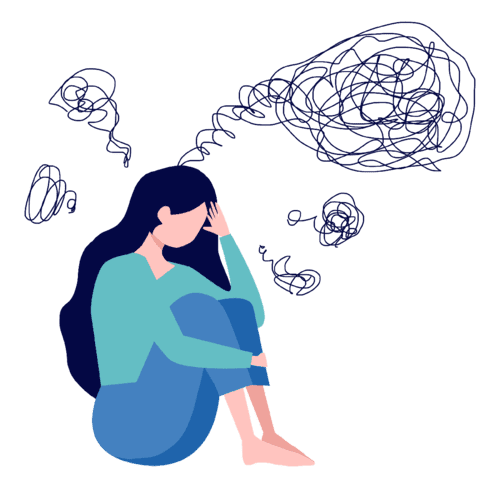Sensory OCD Assessment
Free Sensory OCD Assessment

What is Sensory OCD Assessment?
Sensory OCD assessment involves evaluating an individual’s heightened sensitivity and obsessive focus on sensory experiences, such as textures, sounds, or visual stimuli. It aims to understand the extent to which sensory triggers lead to distressing obsessions and compulsive behaviors. The assessment typically involves clinical interviews, self-report questionnaires, and observation to determine the impact of sensory obsessions on daily functioning. By assessing the specific sensory triggers and associated rituals, mental health professionals can tailor interventions, often integrating exposure therapy, to help individuals manage and reduce the distress caused by sensory-related obsessions and compulsions.
Who can benefit from this Sensory OCD Assessment?
The Sensory OCD Assessment can benefit individuals who experience obsessive-compulsive disorder (OCD) symptoms related to sensory perceptions. This assessment is particularly valuable for those who struggle with obsessions and compulsions centered around sensory experiences, such as tactile sensations, visual stimuli, or auditory input. By identifying specific sensory triggers and responses, this assessment helps tailor treatment approaches, such as Exposure and Response Prevention (ERP) therapy, to address the unique challenges of sensory-focused OCD. It provides a targeted understanding of the individual’s condition, aiding therapists in devising effective strategies for managing distress and improving their overall quality of life.
Sensory OCD Assessment Accuracy
Assessing sensory-related OCD symptoms requires thorough evaluation by a qualified mental health professional. Accurate assessment involves understanding the nature, intensity, and impact of sensory obsessions and compulsions on daily functioning. Collaborative discussions, standardized assessments, and observation aid in determining the extent of sensory OCD’s influence. An accurate diagnosis ensures tailored treatment, potentially combining Exposure and Response Prevention (ERP) therapy, medication, and sensory-focused interventions to effectively manage symptoms and enhance quality of life.
Types of Sensory OCD Assessment
Clinical Interview:
A mental health professional will conduct a thorough interview to gather information about the individual’s symptoms, history, and daily life. This interview helps in understanding the specific sensory triggers, obsessions, and compulsions.
Diagnostic Criteria:
The assessment will involve determining if the individual’s symptoms meet the diagnostic criteria for OCD as outlined in the Diagnostic and Statistical Manual of Mental Disorders (DSM-5).
Symptom Presentation:
The assessment will explore the nature of sensory obsessions (e.g., intrusive thoughts about specific sensory experiences) and sensory compulsions (e.g., repetitive behaviors to reduce sensory distress).
Impact on Functioning:
The assessment will consider how sensory OCD affects the individual’s daily life, including work, relationships, and overall quality of life.
Severity Assessment:
Professionals may use standardized measures to assess the severity of OCD symptoms, including sensory obsessions and compulsions. One common tool is the Yale-Brown Obsessive-Compulsive Scale (Y-BOCS).
Treatment History:
Learning about any previous treatments or interventions the individual has undergone for their sensory OCD can guide the development of a tailored treatment plan.
Handling Sensory OCD Issues
Handling sensory-related OCD issues can be challenging, as these obsessions often involve intense discomfort and distress triggered by sensory experiences. Here are some strategies that might help you manage sensory OCD:
- Therapeutic Support: Seek therapy from a mental health professional who specializes in treating OCD, particularly sensory-related obsessions. Cognitive Behavioral Therapy (CBT) with a focus on Exposure and Response Prevention (ERP) can be especially effective.
- Exposure Therapy: Gradual exposure to the sensory triggers that cause distress can help desensitize you over time. Your therapist will guide you in facing these triggers without engaging in compulsive behaviors. This can help reduce the anxiety associated with the sensory obsessions.
- Mindfulness and Grounding Techniques: Mindfulness practices and grounding techniques can help you stay present and manage the distress caused by sensory triggers. These techniques can include deep breathing, focusing on your surroundings, and engaging your senses intentionally.
- Thought Labeling: Practice labeling your obsessive thoughts as “just thoughts” and remind yourself that they don’t define you. This can help create some distance between you and the distressing thoughts.
- Distraction Strategies: Engage in activities that capture your attention and redirect your focus away from the sensory obsessions. This can help reduce the time spent ruminating on these thoughts.
- Guided Imagery: Work with a therapist to develop guided imagery exercises that help you visualize confronting and managing sensory triggers in a controlled and less distressing way.
- Response Prevention: Refrain from performing the compulsions associated with your sensory obsessions. This can be challenging, but over time, resisting these compulsions can weaken their hold on you.
- Education: Learn about the nature of OCD and how it affects sensory experiences. Understanding the neurological and psychological mechanisms at play can help you rationalize the distressing sensations.
- Progressive Exposure: Gradually increase your exposure to sensory triggers as you build tolerance. Start with less distressing triggers and work your way up to more challenging ones.
- Support System: Let friends and family know about your sensory OCD so they can provide understanding and encouragement. A support system can help you feel less isolated.
- Positive Self-Talk: Develop positive affirmations and self-talk to counteract the negative beliefs associated with your sensory obsessions.
- Professional Guidance: Work closely with a mental health professional who can help tailor strategies to your specific needs and challenges. They can monitor your progress and adjust the treatment plan accordingly.
Remember that managing sensory OCD takes time and persistence. Be patient with yourself and celebrate even small victories along the way. It’s important to seek help from a qualified mental health professional who can guide you through effective techniques for managing your specific sensory-related obsessions.

